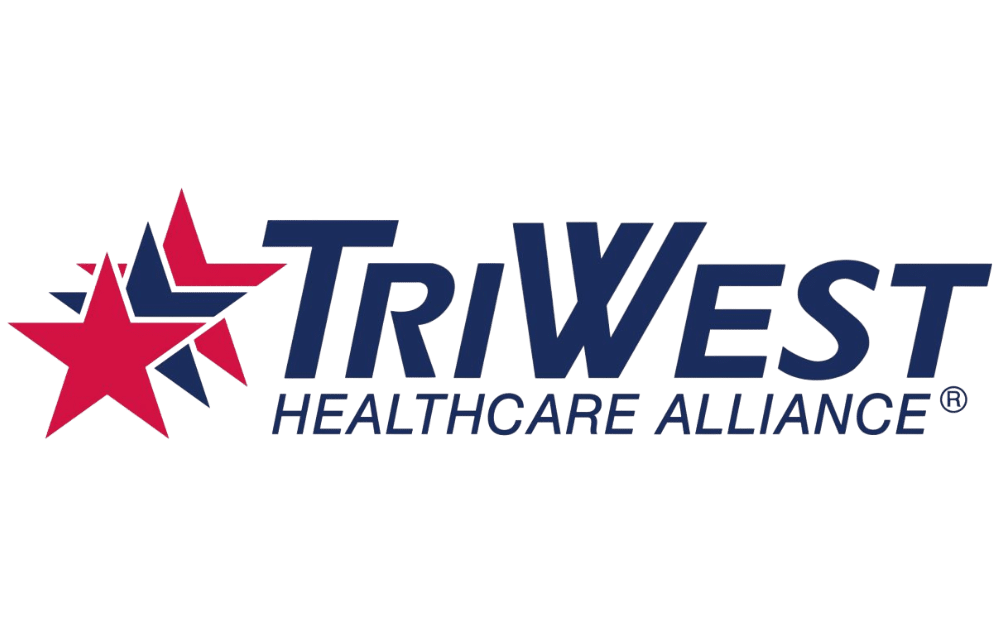Meth addiction treatment
Exploring the Challenges of Meth Addiction
Methamphetamine, often referred to simply as meth, is a powerful and highly addictive stimulant. It significantly impacts the central nervous system, leading to short-term effects such as increased energy and euphoria but also conferring long-term health risks. Many individuals who become addicted find themselves in a precarious cycle of dependency that can be extraordinarily difficult to break without help.
One major challenge is the intense psychological grip meth can hold on its users. The drug’s effects on the brain include an overwhelming increase in the release of dopamine, a neurotransmitter associated with pleasure and reward. This surge can lead to compulsive drug-seeking behavior, as users chase the elusive high that meth provides, often at the expense of their physical and mental health.
Meth Addiction Treatment Landscape
Initial Detoxification
The first critical step in meth addiction treatment is detoxification, a process that involves purging the drug from the body. This phase can be particularly challenging due to withdrawal symptoms such as fatigue, depression, increased appetite, and intense drug cravings. At Mile High Recovery Center, this process is managed with medical supervision to ensure safety and comfort.
While detox does not necessarily treat the addiction itself, it is a crucial precursor to further therapeutic interventions. Properly handling the detox phase can significantly improve the likelihood of successfully progressing through treatment.
Exploring Therapeutic Modalities
Following detox, engaging in a structured treatment program is essential. Mile High Recovery Center employs a range of evidence-based therapies such as Cognitive Behavioral Therapy (CBT) and Dialectical Behavior Therapy (DBT). These therapies aid patients by helping them identify and change destructive thought patterns that contribute to their addiction.
The center also incorporates experiential therapies such as adventure therapy and equine-assisted therapy, offering unique opportunities for patients to engage with therapy in innovative ways. These activities not only provide new coping mechanisms but also foster self-discovery and personal growth.
Holistic Approach to Recovery
Nutrition and Wellness
Nutrition plays a pivotal role in comprehensive meth addiction treatment. Meth use can severely impact an individual’s physical health, including significant weight loss and malnutrition. Mile High Recovery Center addresses these issues through nutrition education, aiming to restore physical health and improve overall well-being.
Wellness is further enhanced through physical activities that complement therapeutic interventions. Exercise programs are designed to improve mood and reduce anxiety, laying a foundation for sustained recovery.
Supportive Living Environments
Sober living homes provide a vital supportive environment for those in recovery. At Mile High, nine sober living residences offer a structured setting where patients can develop life skills and prepare for re-entry into society. Here, residents learn to balance responsibilities and cope with everyday challenges without resorting to substance use.
Importance of Mental Health Services
Meth addiction often co-occurs with mental health disorders such as anxiety and depression. Mile High Recovery Center integrates dual-diagnosis services to address these concurrent issues. By treating both meth addiction and any underlying mental health conditions, the center aims to provide a more comprehensive and effective recovery process.
Professional therapists at Mile High employ a range of treatments to assist patients in managing symptoms and developing healthier coping strategies. This integrated approach ensures that all aspects of the individual’s health are attended to, promoting long-term recovery.
Personalized Care and Community Support
Tailored Treatment Plans
Each individual’s journey to recovery is unique, and treatment should reflect this. Mile High Recovery Center excels in creating personalized treatment plans that address specific needs and preferences. These plans are meticulously crafted to provide a comprehensive strategy for overcoming meth addiction and nurturing long-term sobriety.
Alumni Community Engagement
Recovery does not end after initial treatment. Mile High’s active alumni community supports long-term recovery by maintaining connections with past clients. Participation in alumni events and support groups fosters a sense of belonging and accountability, which can be instrumental in preventing relapse.
Integrating Family in Recovery Process
Family therapy is an integral part of meth addiction treatment. Family members can play a vital role in recovery by providing support, understanding, and encouragement. Mile High offers family counseling sessions to help mend relationships and educate loved ones about addiction dynamics and recovery strategies.
Strengthening family relationships often enhances the recovery experience, providing patients with a robust support network essential for maintaining sobriety after leaving the treatment environment.
Educating family members about addiction can also help dispel myths and reduce stigma, creating a more supportive environment for the individual in recovery.
Strategies for Preventing Relapse
Building Resilience
Mile High teaches clients essential skills for preventing relapse, focusing on resilience and coping strategies. Patients learn how to recognize and manage triggers, handle stress effectively, and establish healthy routines that support sober living.
Resiliency training is paired with ongoing therapeutic support to help individuals confidently navigate life’s challenges without resorting to meth use.
Engagement in Meaningful Activities
Meaningful engagement in hobbies and activities can provide a sense of purpose that supports abstinence. Mile High encourages participation in art, music, and outdoor activities, which serve not only as therapeutic outlets but also as crucial components of a fulfilling, sober lifestyle.
These activities can help reconnect individuals with their passions and talents, providing joy and motivation beyond the confines of traditional therapy settings.
Future of Meth Addiction Treatment
Research is continually evolving in the field of meth addiction treatment. While currently no FDA-approved medications specifically for meth addiction exist, ongoing studies explore promising pharmacological approaches. At Mile High, staying abreast of emerging research is key to offering cutting-edge treatment options.
The integration of new technologies and therapies will likely play a role in the future landscape of meth addiction treatment, promising more effective and tailored approaches to recovery.
What are the primary components of an effective meth addiction treatment process?
An effective meth addiction treatment process typically involves several key components, each designed to address different aspects of the individual’s recovery journey. First, detoxification is crucial; it’s the initial step where the body begins to purge methamphetamines. While detoxing can be uncomfortable due to symptoms like fatigue and depression, having medical supervision, as offered at Mile High Recovery Center, ensures safety and comfort.
Following detox, the treatment focuses on behavioral therapies. Evidence-based therapies like Cognitive Behavioral Therapy (CBT) and Dialectical Behavior Therapy (DBT) help patients identify and change harmful thought patterns. At Mile High, these are complemented by experiential therapies such as adventure and equine-assisted therapy, which foster self-discovery and growth.
A holistic approach that includes nutrition and wellness is vital too, especially given meth’s impact on physical health. Rebuilding nutrition and participating in physical activities aid recovery. Moreover, addressing any co-occurring mental health disorders through dual-diagnosis services ensures comprehensive care.
A supportive community and continuous engagement, such as participation in alumni programs, are also critical to sustaining recovery. This rounded approach ensures long-term sobriety, with Mile High providing a tailored and community-based strategy.
What are some common misconceptions about meth addiction treatment?
A prevalent misconception is that detoxification alone is sufficient for recovery. While detox is a necessary first step, true recovery involves much more, including addressing the psychological aspects of addiction through therapy and building resilience to prevent relapse.
Another myth is that meth addiction treatment has a one-size-fits-all approach. In reality, successful treatment should be personalized, considering each individual’s unique circumstances. At Mile High, treatment plans are tailored to each person, combining various therapies and interventions.
Some people also believe that willpower alone is enough to overcome meth addiction. However, meth profoundly affects brain chemistry, creating a dependency that’s difficult to break without professional support. Treatment centers like Mile High provide the necessary framework and support system for recovery.
By understanding the complexities of addiction and the comprehensive care required, individuals and their loved ones can better navigate the journey to recovery.
How important is family involvement in meth addiction treatment and recovery?
Family involvement is incredibly important in the recovery process. Family members can provide emotional support and encouragement, which are vital for individuals undergoing treatment. At Mile High Recovery Center, family therapy is integrated into treatment plans to strengthen family bonds and enhance the individual’s support network.
Family therapy sessions educate members about addiction dynamics, breaking down misconceptions and reducing stigma. This understanding helps create a more supportive environment, which can be essential for maintaining sobriety after treatment.
Imagine a recovering individual who, during family therapy, discovers that open communication with family eases their feelings of isolation. Such sessions can mend strained relationships, paving the way for a more supportive recovery journey.
By involving families, Mile High ensures that recovery is not only about the individual but also about fostering a healing environment for everyone involved.
What role do mental health services play in meth addiction recovery?
Mental health services are a cornerstone of effective meth addiction recovery, given that many individuals struggling with meth addiction also face mental health issues like anxiety and depression. Mile High Recovery Center addresses these co-occurring conditions through dual-diagnosis services, which treat addiction and mental health concurrently.
Imagine dealing with both depression and meth addiction. Without addressing the depression, the risk of relapse remains high. Thus, therapies such as CBT help manage mental health symptoms and provide strategies to cope with triggers.
This integrated approach ensures comprehensive care and reduces the chances of relapse, as the underlying mental health issues are also tackled. With professional guidance, individuals are equipped with healthier coping mechanisms, fostering a more stable, long-term recovery.
Ultimately, addressing mental health alongside addiction is pivotal for a successful recovery journey, and Mile High prioritizes this integrated care model.
What does the future hold for meth addiction treatment?
The future of meth addiction treatment is promising, with ongoing research and advancements offering hope for even more effective interventions. Although there are currently no FDA-approved medications specifically for meth addiction, studies, such as those referenced by the NIH, are exploring pharmacological solutions that show potential in aiding recovery.
Moreover, the integration of new technologies and therapies is likely to enhance treatment approaches. Virtual reality therapy, for instance, could become a tool for helping individuals manage cravings and triggers in a controlled environment.
At Mile High Recovery Center, staying updated with the latest research and treatment innovations is a priority. This dedication ensures that individuals receive cutting-edge care tailored to their needs, reinforcing the center’s commitment to comprehensive and effective recovery solutions.
As we look to the future, innovative treatments hold the potential to transform recovery experiences, offering new pathways for individuals seeking sobriety.
Resources
- National Institute on Drug Abuse – The National Institute on Drug Abuse (NIDA) is a government research institute focused on addressing the health effects of drug abuse and addiction.
- Substance Abuse and Mental Health Services Administration – SAMHSA is a branch of the U.S. Department of Health and Human Services dedicated to improving the behavioral health of Americans.
- American Psychiatric Association – The American Psychiatric Association is a leading organization of psychiatric professionals advocating for excellent patient care.
- American Psychological Association – The American Psychological Association is the largest scientific and professional organization representing psychology in the United States.
- National Institutes of Health – The National Institutes of Health is the primary agency for conducting and supporting medical research in the United States.
















